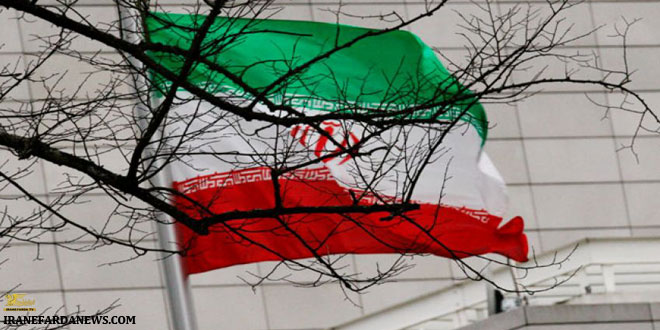THE NEW YORK TIMES-
By: Roger Cohen –
Some people cannot stand good news. It troubles their fixed view of the world. These would include Senator Marco Rubio, the Republican presidential candidate, and Prime Minister Benjamin Netanyahu of Israel, who were cast into a huff by the confirmed reversal of Iran’s nuclear program and its release of several Americans, including Jason Rezaian of The Washington Post.
Try a smile, guys. Toughness is no more than empty aggression when it will not admit to misjudgment. Diplomacy delivers.
Rezaian is coming home after a year and a half of groundless imprisonment. An American pastor and a former Marine will be reunited with their families. Iran had more than 19,000 first-generation centrifuges installed; that number is now 6,104. Its advanced centrifuges have been slashed from over 1,000 to zero. Its low-enriched uranium stockpile has been cut to 660 pounds from over 19,000.
The plutonium route to a bomb has been cut off. Iran is subject to what President Obama called “the most comprehensive, intrusive inspection regime ever negotiated to monitor a nuclear program.” The country’s “break-out” time — the period needed to rush for a bomb — has been extended to a year from two to three months.
The trauma-induced Iranian-American psychosis, ongoing since the birth of the Islamic Republic in 1979, has been overcome. Two tireless diplomats, Secretary of State John Kerry and the University of Denver-educated Iranian foreign minister, Mohammad Javad Zarif, speak when needed. American sailors who strayed into Iranian waters are released within 24 hours. A financial dispute outstanding since 1981 is resolved. The world’s 18th-largest economy is about to rejoin the world at a time when the sinking global economy sure could use a jolt. The nuclear deal, even in these early days, is not hermetic. It opens doors.
To all of which Rubio responds that Obama has put “a price on the head of every American abroad” when he should have used “crippling sanctions” (oh, please, not that crippled phrase again). Netanyahu actually claims that if it were not for Israel “leading the way” on sanctions, “Iran would have had a nuclear weapon long ago.” Iran, he baritones, “has not relinquished its ambition to obtain nuclear weapons.”
That may be — or not. We can all go guessing in the Iranian bazaar. Nothing comes cheaper than an Iran pontificator.
What is clear is that Iran is much further from a nuclear weapon because of the courageous diplomacy of Obama and Kerry and Zarif and the Iranian president, Hassan Rouhani, who all confronted hostile constituencies at home to get the deal done.
For Iran, the arrival of “implementation day” means the lifting of all nuclear-related sanctions and access to about $100 billion in frozen assets. A big nation is open for business again, back in the global financial system and world oil market.
Netanyahu, Rubio and their ilk believe Iran will use the windfall to do its worst. That cannot be discounted. The United States and Iran remain hostile on most fronts, from Syria to Israel. Revolutionary Guard hard-liners have not drunk the Kool-Aid at the Rouhani-Zarif school of diplomacy. Obama’s imposition of mild new sanctions for banned missile tests was a reminder of differences.
But if the development of recent days demonstrate one thing, it is that Iran, 37 years from its revolution, is delicately poised between hard-liners and reformers, neither of whom can dictate the country’s course, each of whom need the other for now. Imminent parliamentary elections may indicate which camp is ascendant. Whatever happens, it is hard to argue that greater contact with the world will be bad for the large, modernizing, highly educated younger generation. Iran is a pro-American country with a tired anti-American refrain. It has a successful diaspora community ready to help revive the country — if allowed to do so.
The breakthrough with Iran is Obama’s greatest foreign policy achievement, one that may have a transformative effect on the region. The next decade will show to what degree. That potential is what has American allies from Saudi Arabia to Israel so perturbed. They preferred the status quo.
Of course it could all unravel. Predicting Doomsday is easy. But with hard work, I believe the chances are greater that American-Iranian diplomatic relations will be restored within five years.
The Economist had a good summary of why Iran’s reintegration is so important and consequential. It noted that “the prospects in a post-deal Iran are vast.” The country is not “an oil-soaked rentier state,” like some of its neighbors, but a “regional power with an industrial economy” — if a grossly mismanaged one. Its population of 80 million is well-educated, its oil and gas reserves enormous. The country’s pent-up need for foreign investment may amount to $1 trillion. Iran, it concluded, is “preparing for takeoff.”
Try saying the word Iran without saying the word “nuclear.” It’s time. In fact, it’s past time, even if good news is too much for some.
 khalijefars News, Blogs, Art and Community
khalijefars News, Blogs, Art and Community









